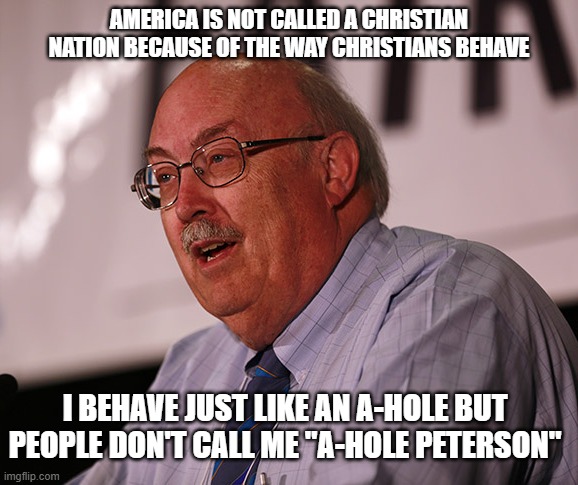Christian Patriotism
Posted: Sat Jul 06, 2024 8:48 pm
On the one hand, I am not a big fan of rooting out the historical contribution of Christianity to the USA’s culture and civilization. As a historian, I find it impossible to understand where our nation comes from and what it is without taking account of Christianity’s place in those origins and present culture.
For this reason, secular America’s allergic reaction to this fact grates on me severely. Christianity’s contribution merits more than grudging acknowledgment. It was hugely important to the foundation of our nation.
On the other hand, I find pieces like this selective in a cringy way:
https://www.standingforfreedom.com/2024 ... pendence/?
Predictably, Thomas Jefferson is invoked as a figure whose thought was much indebted to Christianity. And that is exactly where we start getting into a tangled mess, one that is uncomfortable for everyone, or should be even if it too often isn’t. We can approach the problem productively with these questions:
What kind of Christian was Thomas Jefferson, and how much was his Christian thought also shaped by Classical literature and Enlightenment philosophy?
So this piece quotes Jefferson writing about God and natural law, and, while all of that may be glossed over by the average Christian reader who is only too ready to assume that Jefferson meant more or less the same as they believe, I could just as easily relate the same passages to my knowledge of Cicero’s philosophical and theological writings.
Cicero, it should not need to be pointed out, was NOT a Christian.
I am not saying that Jefferson thought of the Classics exclusively, predominantly, or anything of the sort when he talked about God and natural law, but his thought was at least partly shaped by the Classics and the philosophy of his time. But most of the readers of that piece may never pause to consider how the complexity of Jefferson’s actual intellectual biography matters.
People will continue to look into Jefferson and America’s founding like a mirror in which they want to see themselves nicely affirmed, sometimes at the expense of those they disagree with. It would be better to recognize that we probably don’t fully understand Jefferson, the nation’s founding, etc., and go forth seeking to understand the parts that strike us as odd, unfamiliar, and even off-putting. History does not exist simply to help us celebrate ourselves as we like to imagine ourselves to be.
For this reason, secular America’s allergic reaction to this fact grates on me severely. Christianity’s contribution merits more than grudging acknowledgment. It was hugely important to the foundation of our nation.
On the other hand, I find pieces like this selective in a cringy way:
https://www.standingforfreedom.com/2024 ... pendence/?
Predictably, Thomas Jefferson is invoked as a figure whose thought was much indebted to Christianity. And that is exactly where we start getting into a tangled mess, one that is uncomfortable for everyone, or should be even if it too often isn’t. We can approach the problem productively with these questions:
What kind of Christian was Thomas Jefferson, and how much was his Christian thought also shaped by Classical literature and Enlightenment philosophy?
So this piece quotes Jefferson writing about God and natural law, and, while all of that may be glossed over by the average Christian reader who is only too ready to assume that Jefferson meant more or less the same as they believe, I could just as easily relate the same passages to my knowledge of Cicero’s philosophical and theological writings.
Cicero, it should not need to be pointed out, was NOT a Christian.
I am not saying that Jefferson thought of the Classics exclusively, predominantly, or anything of the sort when he talked about God and natural law, but his thought was at least partly shaped by the Classics and the philosophy of his time. But most of the readers of that piece may never pause to consider how the complexity of Jefferson’s actual intellectual biography matters.
People will continue to look into Jefferson and America’s founding like a mirror in which they want to see themselves nicely affirmed, sometimes at the expense of those they disagree with. It would be better to recognize that we probably don’t fully understand Jefferson, the nation’s founding, etc., and go forth seeking to understand the parts that strike us as odd, unfamiliar, and even off-putting. History does not exist simply to help us celebrate ourselves as we like to imagine ourselves to be.
